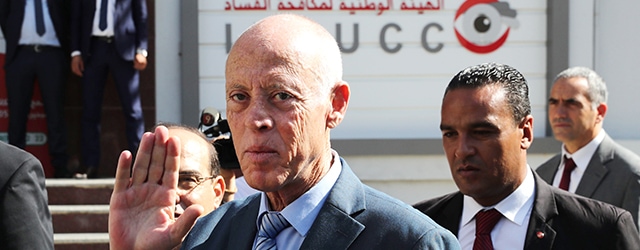An outsider takes over in Tunisia.

Few people had heard of Kais Saied before he became Tunisia’s president in October. Now in office, one of the sternest challenges the former constitutional law professor faces is a struggling economy. What the new president aims to do about this, however, remains a big question.
“During the campaign, none of the candidates spoke about Tunisia’s real economic problems,” says Skander Ounaies, professor at the University of Carthage and former economic advisor to the Kuwait Investment Authority. “Regarding Saied, we don’t even know who makes up his entourage, and that’s a big problem.”
In the first half of this year, growth was stagnant at 1.1% compared with 2.5% in 2018. Inflation stands at 6.8%, and public debt represents 90% of GDP.
The International Monetary Fund is urging the new government to reduce public spending. But so far, such measures have been widely unpopular. An attempt by the previous government to cut public-sector wages earlier this year resulted in massive strikes. Investment is also needed in traditionally strong sectors such as energy and mining. “It’s crazy; we are practically not producing anything anymore,” says Ounaies.
Another pressing issue is unemployment. National data show that 15% of Tunisians are out of a job, and the number is above 30% in some regions. The first victims of the jobs crisis are young graduates. Still, over 90% of them voted for Saied, hoping he will be put an end to corruption.
In the minds of many Tunisians, the new president embodies the spirit of the 2011 revolution; he talks of a new form of direct democracy with checks and balances and more power at the local level. Without a party or a clear power structure behind him, however, Saied is a political outsider. He captured the support of Islamists with whom he shares socially conservative views. He has spoken in favor of the death penalty and against gay rights and gender equality.
While Saied won over 70% of the vote, he has little leverage over economic policy according to the constitution. That is the prerogative of the prime minister’s government.



